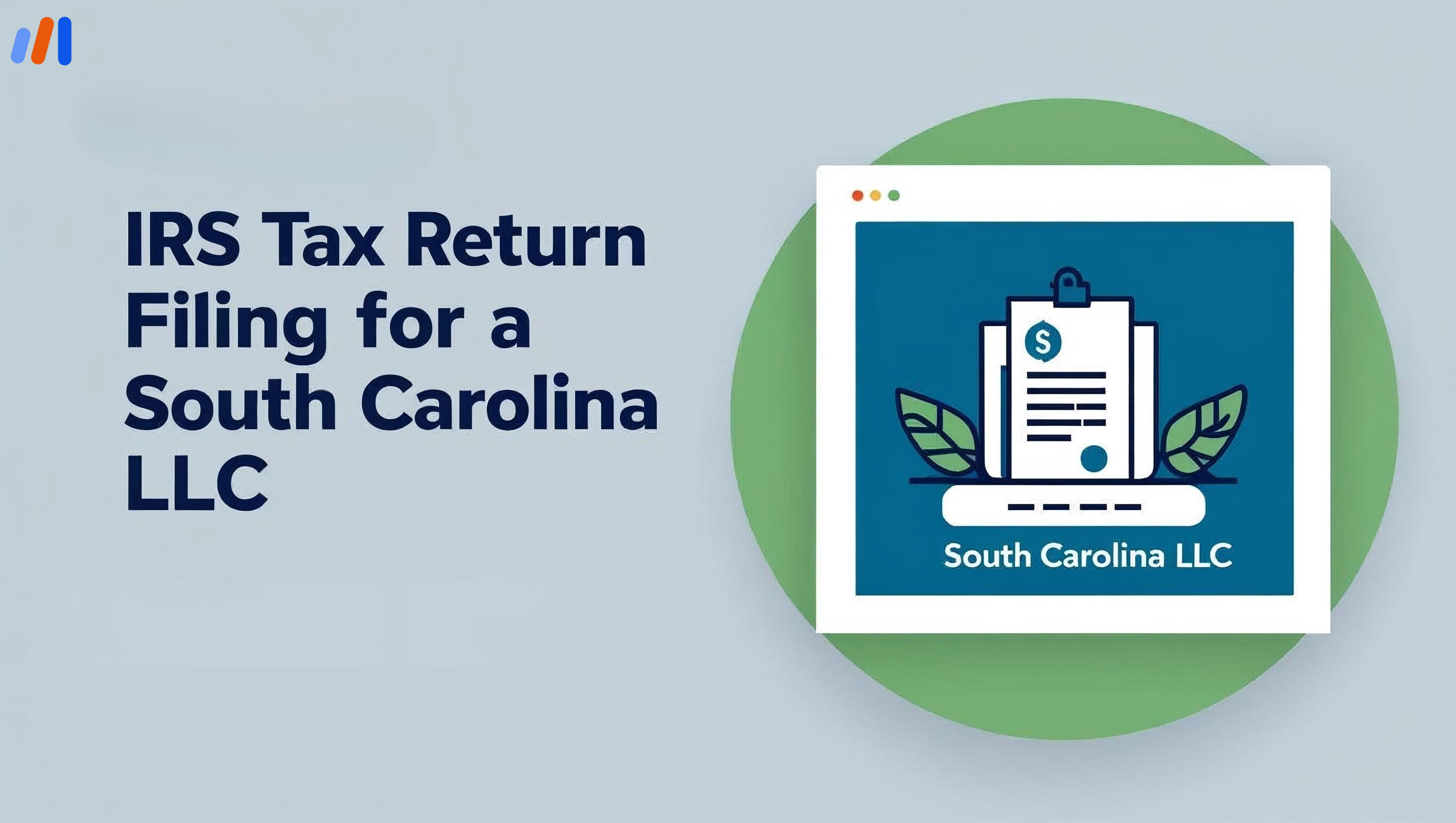Are you thinking about establishing a business in the scenic state of New Hampshire? This delightful state with its engaging people and breathtaking views is an ideal place for startups.
One of the ideal options is forming a Limited Liability Company (LLC), which functions to shield your possessions in case the need arises.
This structure protects limited liability, with some organizational flexibility and good tax advantages. Tomorrow, you can launch a small hospitality business or an information technology startup, with an LLC that can match your future business objectives and development.
This is an all-inclusive guide that will give a helping hand on each step of the process ensuring you do not lack anything, to get your LLC set up appropriately.
From New Hampshire’s perspective, an LLC is especially attractive because of the combination of limited liability and the advantage of pass-through taxation, which explains its popularity among many small to medium-sized enterprise owners.
Benefits of Forming an LLC in New Hampshire
Limited Liability: One of the main advantages of setting up an LLC is its protection of your assets. In principle, as an LLC owner, your personal belongings are insulated from the business and its debts and liabilities. It means that in case any legal disputes or financial hardships are facing the business and its operations, your belongings like houses, cars, as well as savings are usually protected.
Tax Flexibility: New Hampshire provides a special tax advantage for LLCs. The State is lacking a corporate income tax which frees LLCs from paying income taxes on business profits. However, this does not mean that LLC members won’t be paying taxes because they might still be liable to personal income tax on the share of different business earnings.
Pass-Through Taxation: Typically, LLCs in New Hampshire are done on a pass-through basis, that is, there are movements of profit generated or losses incurred to the individual members’ tax returns. This may be good news for small businesses since double taxation faced by corporations will not apply to them.
Operating Flexibility: In terms of their operations, an LLC offers a good degree of flexibility. The members of the LLC can manage it (member-managed) or managers appointed by the members manage the LLC (manager-managed). This offers you an option to select a management structure that best fits your business needs and preferences.
Simplified Formation and Administration: LLCs are relatively easier to form in comparison with other business formats. The filing of articles of organization with the Secretary of State of New Hampshire is a simple activity and there is very little administration activity required thereafter.

Step 1: Choose a Name for Your LLC
Unique Name: When you are naming your LLC, its name must be different from that of any other business that has already registered in New Hampshire. This uniqueness is important because it helps to minimize the chances of getting into legal trouble with other entities that may have similar names.
Name Guidelines: The name should contain the words ‘Limited Liability Company’ and its derivatives like ‘LLC’ or ‘L.L.C.’ This helps to inform the public and clients on the type of business structure one is operating so that the nature of the enterprise is understood.
Name Search: A name search should be done on the New Hampshire Secretary of State’s page to find out whether the name you intend to be employed is available. This straightforward but essential task will be of great assistance in the future because it will prevent disqualification of the application on the grounds of similarities in name usage.
Step 2: Choose a Registered Agent
Function: Registered agents serve as the primary point of contact for your LLC, managing your company’s legal documents, government communications, and tax returns. This guarantees that a company will stay compliant and will be able to address legal issues promptly.
Specifications: New Hampshire registered agents should be residents of the state, and their schedules should be such that they are reachable throughout standard business hours to receive critical papers and other communications. The competency of your agent is paramount since any failure to receive any communication may be disastrous.
Options: You may choose an individual, like yourself, or a business service, which is authorized to engage in business in the State of New Hampshire. Factors like ease of access, knowledge, and trustworthiness should be considered when making this choice.
Step 3: Make the filling for a Certificate of Formation
Document: The Certificate of Formation is an important document that is used when registering for an LLC, with the formation. This document has to be presented to the state by the New Hampshire Secretary of State to enable them to commence operations within the law.
Details Necessary:
- The full name of the individual or LLC as it appears on the registration certificate
- Name and address of the registered agent
- Details about the management formation of the LLC, will it be member-managed or manager-managed?
- The period within which the LLC is expected to exist unless operations of the LLC will be running forever
Filing Fee: In the present case, it is established that valid filing fee the filing fee remains at $100, which applies to most states when registering a business. This fee is needed to cater for the processing of your application to make sure that your LLC is duly incorporated.
Filing Methods: You can submit your Certificate of Formation online on the Secretary of State’s website, alternatively you can send it using Form LLC-1. This gives you the option of choosing what suits you best, whether you are in a hurry and would rather use E-filing or mail filing.
Step 4: Establish An Operating Agreement
Purpose: An operating agreement of the LLC depicts the ownership structure and operating procedures. It is responsible for outlining the functional and financial decisions of the business organization and thus defines a governance structure.
Contents:
- Obligations of members and their voting power
- Distribution of the profit and the loss between the members
- Process for modifications in membership
- Process for the dissolution of the LLC
Necessity: An operating agreement is not a requirement under the laws of New Hampshire, however, its drafting is encouraged. It seeks to mitigate disputes and the level of ambiguity about the core business activities of the LLC because it gives and guarantees direction to all the members to reduce the chances of conflict.
Step 5: Apply For An Employer Identification Number (EIN)
Why You Need One: An Employer Identification Number (EIN) is important for several purposes:
- To open a business account which would help to distinguish between business activities and personal activities.
- Employing people and doing payroll conveniently.
- Paying federal and state taxes.
Application: Obtaining an EIN Number is free of charge and can be done through the IRS website. This can be completed in person, through the mail, or by fax so that the end user is not strained and can get the important Worthless number quickly.
Step 6: Comply with State and Local Requirements
Business License: In addition to the basic license, other permits may also be necessary for you to operate your business within New Hampshire, and are specific to your industry. You must understand the requirements for your business sector fully so that you do not infringe on any legal obligations.
Annual Report:
- Due April 1st each year
- The filing fee is typically $100
- File online via the New Hampshire Secretary of State’s website to ensure timely compliance
Complying with tax obligations informs the state authorities on the status of your business and helps to avoid future problems regarding tax obligations.
Conclusion
To conclude, the procedures above have given a more or less a step-by-step process on how one can register an LLC in New Hampshire.
For many entrepreneurs, this type of company has a lot of benefits, it is safe, flexible, and has credibility as a structure. After establishing your LLC, you should be mindful of compliance with the state and your annual obligation to renew licenses or permits if necessary.
If that is the case, be sure to retreat to a legal expert or business adviser for such instances to get the necessary guidance for that particular business that you are in.
If the proper restrictions are in place and all of the steps outlined are followed correctly, New Hampshire has a professionally structured environment for an LLC to succeed and develop quite well.
Book a free consultation for clear guidance on how to set up a New Hampshire Limited Liability Company and any other services that you may need.
Frequently Asked Questions (FAQs)
Is it possible for a foreigner to set up an LLC in New Hampshire?
Of course, a foreign national can set up an LLC in New Hampshire, but they have to hire a registered agent with a physical address in New Hampshire.
What is required to remain in good standing for my LLC registered in New Hampshire?
An LLC in New Hampshire should comply with the annual report that is submitted to the Secretary of State’s office before or on April 1st of each year. An annual surcharge of 100 dollars is incurred.
Is an Operating Agreement obligatory for an LLC Business in NH?
An operating agreement is not necessarily a legal requirement of the state, but it is an important document that should be drawn up. It provides information on the various owners and the procedures that the LLC follows which facilitates the minimisation of disagreements and smooth running of the business.
How fast can one form an LLC in New Hampshire?
The time taken to process an application for forming an LLC in New Hampshire varies from person to person. In most cases, it takes about 1 to 2 weeks for standard processing to occur, but some people will be required to incur some extra costs for expedited services.
File Your LLC Today
25$ off with a coupon
Lock in EasyFiling's transparent rates and get lifetime compliance support at no extra cost.
Get Started Now









